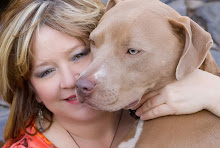
One of the best gifts you can give to your dog (and to yourself and your family) is early socialization. This will help minimize the chances of many behavioral problems, including aggression, later on in his life. Dogs that are not socialized are the ones who are much more likely to develop behavioral problems later, and working on it early with your puppy can save you headaches down the road.
The most effective age to socialize your puppy is between the ages of 3 and 14 weeks old, the age when a puppy is most accepting of all kinds of people and situations. If puppies are not exposed to children, the elderly, different races, etc. or any particular group of people while young, they can be fearful of these groups later in life and aggression can be the reaction to them. It is important to expose the puppy to as many different people as early as possible. This will build his confidence, and make him better able to cope with new situations as he matures.
Socialization may start when the puppy is young, but it is truly a lifelong effort on the part of the owner, in making a great dog! Good owners should encourage and reinforce social skills and maintain training exercises throughout the life of the dog.
Participating in a puppy training class by the time your puppy is 4 months old will go a long way in helping your puppy gain confidence and being able to deal with many situations later in an acceptable way. The puppy's training, however, should not stop there. Dogs need continuous training and socialization throughout their whole lives to keep them in good practice with their good behaviors you've taught.


2 comments:
I couldn't agree more, Paige! A foster dog I had for awhile started showing some aggression toward our mailman, who happened to be black, and so I started socializing him to all kinds of different races of people. After a few weeks of meeting lots more people that looked like the mailman, he was less anxious when he saw our mailman coming up. It helped that I became friendlier to the mailman, starting conversations with him, and showing Danny (the foster) it was a safe situation. Thank you for sharing this info. I know a lot of people need this one!
So true. But do you think an 8 year old lab with aggression problems can be rehabilitated? I just got this dog as a foster and I am pretty sure either 1) he's been abused, or 2) he has never been socialized at all! I'm afraid he might hurt my dogs. I'm going to call you for help. Good article.
Post a Comment